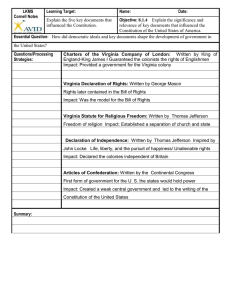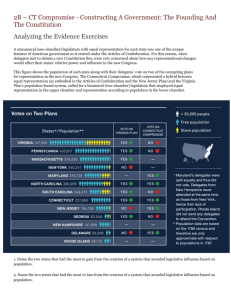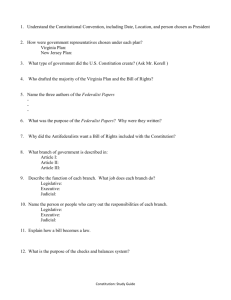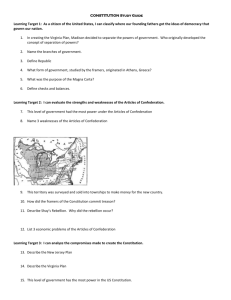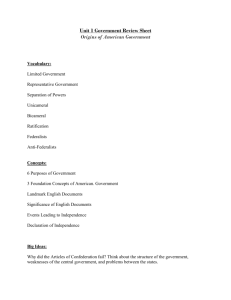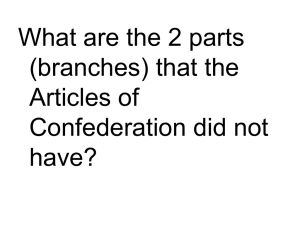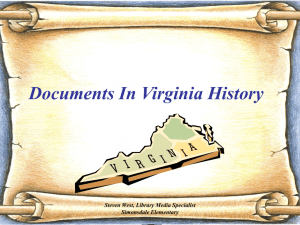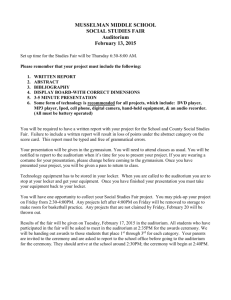Vocabulary Terms
advertisement
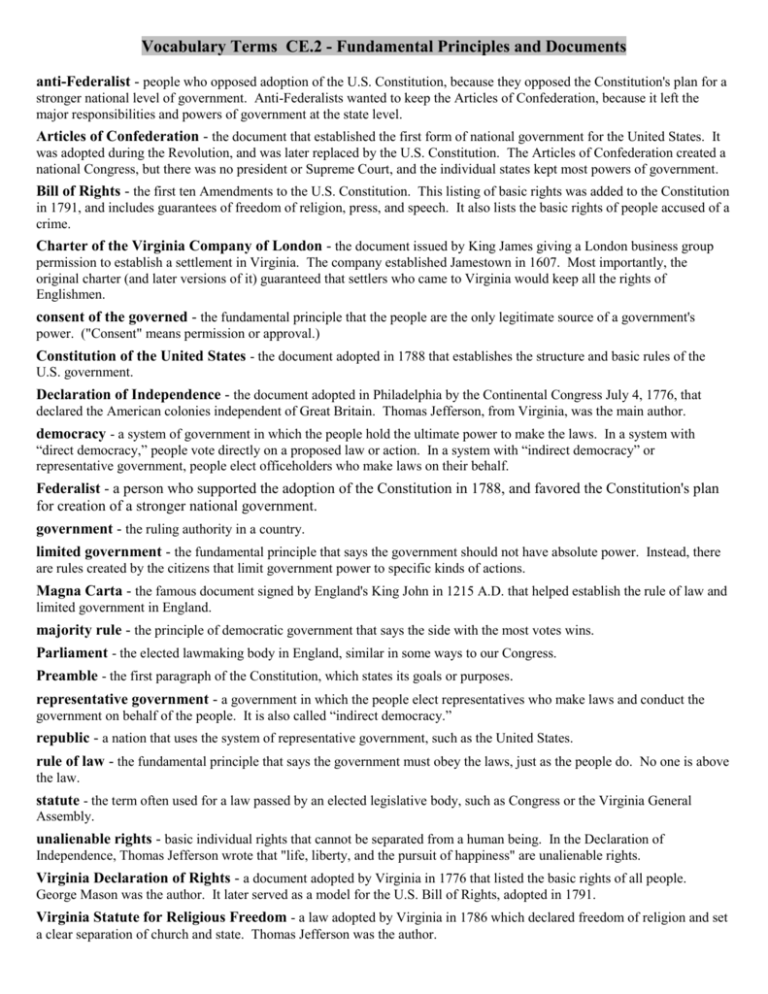
Vocabulary Terms CE.2 - Fundamental Principles and Documents anti-Federalist - people who opposed adoption of the U.S. Constitution, because they opposed the Constitution's plan for a stronger national level of government. Anti-Federalists wanted to keep the Articles of Confederation, because it left the major responsibilities and powers of government at the state level. Articles of Confederation - the document that established the first form of national government for the United States. It was adopted during the Revolution, and was later replaced by the U.S. Constitution. The Articles of Confederation created a national Congress, but there was no president or Supreme Court, and the individual states kept most powers of government. Bill of Rights - the first ten Amendments to the U.S. Constitution. This listing of basic rights was added to the Constitution in 1791, and includes guarantees of freedom of religion, press, and speech. It also lists the basic rights of people accused of a crime. Charter of the Virginia Company of London - the document issued by King James giving a London business group permission to establish a settlement in Virginia. The company established Jamestown in 1607. Most importantly, the original charter (and later versions of it) guaranteed that settlers who came to Virginia would keep all the rights of Englishmen. consent of the governed - the fundamental principle that the people are the only legitimate source of a government's power. ("Consent" means permission or approval.) Constitution of the United States - the document adopted in 1788 that establishes the structure and basic rules of the U.S. government. Declaration of Independence - the document adopted in Philadelphia by the Continental Congress July 4, 1776, that declared the American colonies independent of Great Britain. Thomas Jefferson, from Virginia, was the main author. democracy - a system of government in which the people hold the ultimate power to make the laws. In a system with “direct democracy,” people vote directly on a proposed law or action. In a system with “indirect democracy” or representative government, people elect officeholders who make laws on their behalf. Federalist - a person who supported the adoption of the Constitution in 1788, and favored the Constitution's plan for creation of a stronger national government. government - the ruling authority in a country. limited government - the fundamental principle that says the government should not have absolute power. Instead, there are rules created by the citizens that limit government power to specific kinds of actions. Magna Carta - the famous document signed by England's King John in 1215 A.D. that helped establish the rule of law and limited government in England. majority rule - the principle of democratic government that says the side with the most votes wins. Parliament - the elected lawmaking body in England, similar in some ways to our Congress. Preamble - the first paragraph of the Constitution, which states its goals or purposes. representative government - a government in which the people elect representatives who make laws and conduct the government on behalf of the people. It is also called “indirect democracy.” republic - a nation that uses the system of representative government, such as the United States. rule of law - the fundamental principle that says the government must obey the laws, just as the people do. No one is above the law. statute - the term often used for a law passed by an elected legislative body, such as Congress or the Virginia General Assembly. unalienable rights - basic individual rights that cannot be separated from a human being. In the Declaration of Independence, Thomas Jefferson wrote that "life, liberty, and the pursuit of happiness" are unalienable rights. Virginia Declaration of Rights - a document adopted by Virginia in 1776 that listed the basic rights of all people. George Mason was the author. It later served as a model for the U.S. Bill of Rights, adopted in 1791. Virginia Statute for Religious Freedom - a law adopted by Virginia in 1786 which declared freedom of religion and set a clear separation of church and state. Thomas Jefferson was the author.
